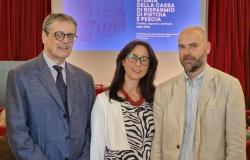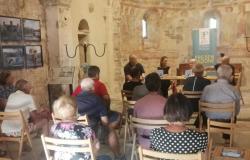The Naúta, in ancient Greece, was the sailor, the one who embarked on the sea in search of adventures, a bit like Odysseus. But he also represents a curious person, who is not satisfied with the surface and who wishes to dig deep to understand the true nature of things, to satiate his thirst for knowledge of the world and his intimate being. This book is not a dispenser of philosophical knowledge: it does not hide the elixir of long life nor the secret of happiness. But, it certainly promises to provide phrases, quotes and ideas to learn more about the past world and be able to understand modern reality more deeply. Greeks and Romans often asked themselves the reason for their life on Earth, the way to explore their personality more deeply and the best way to face the difficulties that surrounded them. Authors, poets and philosophers have left the modern reader with very rich ideas with which to analyze human nature. Through a path composed of maxims, proverbs and words from a distant past, the author intends to accompany the modern navigator through an ocean of reasoning. Virgil, Seneca, Cicero, Plato and Sappho are ready to make their voices heard and open the doors of their fascinating world. Behind a simple word in ancient Greek lies a myriad of different nuances, sometimes impossible to translate despite the richness of the Italian language. And it will be precisely the beauty and modernity of these terms, proverbs, phrases and sayings that will leave the modern Naúta speechless, who only has to open his mind and prepare for this exciting journey…
Daniele Coluzzi is a regular in the classical world: a professor of literature in a high school in the province of Rome, a cultural communicator on social media with thousands of followers and the author of highly successful mythological retellings (I am Persephone And I hate and I love, both published by Rizzoli in 2022 and 2023 respectively). It’s impossible not to mention it too Disgraced by heaven and earth, the anthology co-written with Francesco Gnerre in which the authors collected testimonies of homosexual love in Italian literature – also published in 2023 by Rogas. With This is how we reach the stars Coluzzi returns to bookstores with a work that differs from previous publications, but not by much. It is, in fact, a collection of “words, phrases and quotes from the ancient world to understand oneself and the present”. The journey across this sparkling ocean starts from the very famous Γνῶθι σαυτόν (gnôthi sautón, “know thyself”), the stupendous phrase that shone in clear letters on the pediment of the temple of Apollo at Delphi. An invitation to man to be more and more aware of his own interiority day after day, which is the secret to being able to understand everything else. The journey then continues among Latin quotations such as “Nihil difficile amore puto” by a strangely romantic Cicero, “Ubi tu, ibi ego” with which the Romans united in marriage, “Alea iacta est” with which Caesar took over the reins of one’s own destiny (and of Rome), “Multum legendum esse non m ulta” with which Pliny the Younger urges us to prefer the quality of in-depth analysis. And again, through phrases, proverbs and Greek words, such as Θαῦμα (thaûma, “wonder”), “Δóξει τις ἀμαθεῖ σοφὰ λέγων οὐκ εὗ φρονεῖν” (dòxei tis amathèi sofa lègon uk èu phonèin, “he who speaks wisely to a ignorant”), Οὔτοι συνέχθειν, ἀλλὰ συμφιλεῖν ἔφυν (ùtoi sunèchthein, allà sumphilèin èphun, “I was not born to share hatred, but to share love”). All accompanied by the comments and considerations of Coluzzi who, like an expert helmsman, leads his Naúta on this exciting journey, asking him questions of Socratic memory to stimulate ever deeper reflection. To this we must add the wonderful illustrations that make the work a must in the libraries of lovers of antiquity. Only one small point needs to be made: some of the Greek quotes lack transliteration, which makes them illegible to those who have not carried out classical studies. And, given the beauty of the collected sentences, it’s a real shame.





